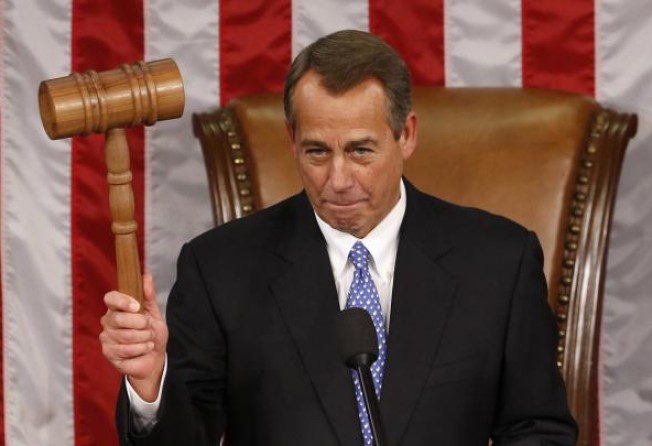John Boehner narrowly re-elected as House Speaker

John Boehner, the top Republican in Washington, has been narrowly re-elected to his powerful job as Speaker as the new US Congress opened for business, despite a mini-revolt in his own party over the "fiscal cliff" deal.
The 113th Congress welcomed dozens of new members to face festering problems and a partisan and crisis-driven era of divided government.
Boehner beat Nancy Pelosi 220-192 but 14 Republicans declined to vote for Boehner as House Speaker, a reflection of their discontent with his leadership, though they were unable to deny him a first-ballot win. He must now shepherd Congress through battles over raising the country's US$16.4 trillion borrowing limit and US$109 billion in spending cuts for military and domestic programmes, which this week's fiscal cliff deal delayed by two months.
One issue the House did move on was compensation for victims of superstorm Sandy, overwhelmingly approving US$9.7 billion to pay flood insurance claims for the many flooded-out home and business owners. The vote came more than two months after the storm hit and days after Northeast Republicans erupted over Boehner's decision to delay an earlier vote.
Moments after grasping an oversized gavel that symbolises his authority, Boehner implored members to tackle the heavy burden of debt at long last. "We have to be willing - truly willing - to make this right," he said. "The American dream is in peril so long as its namesake is weighed down by this anchor of debt."
Republicans kept their majority in the House but will have a smaller advantage, 235-199. Democrats tightened their grip on the Senate for a 55-45 edge, ensuring Senate Democratic leader Harry Reid stays in charge.
Reid said he, too, is ready for attempts to rein in federal spending, but had a few conditions.
"Any future budget agreements must balance the need for thoughtful spending reductions with revenue from the wealthiest among us and closing wasteful tax loopholes," he said.